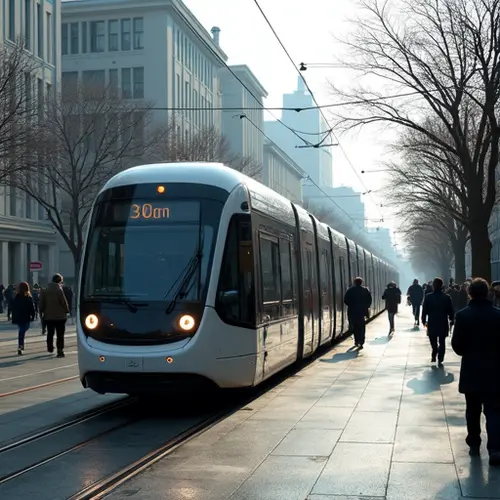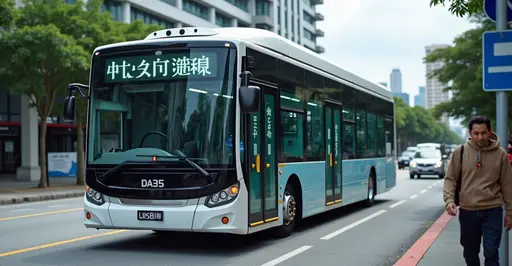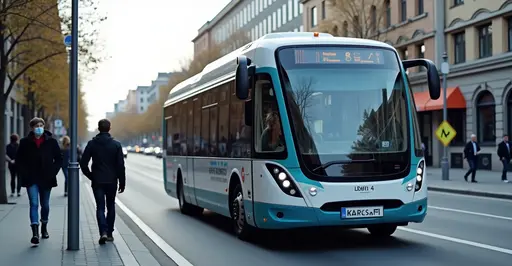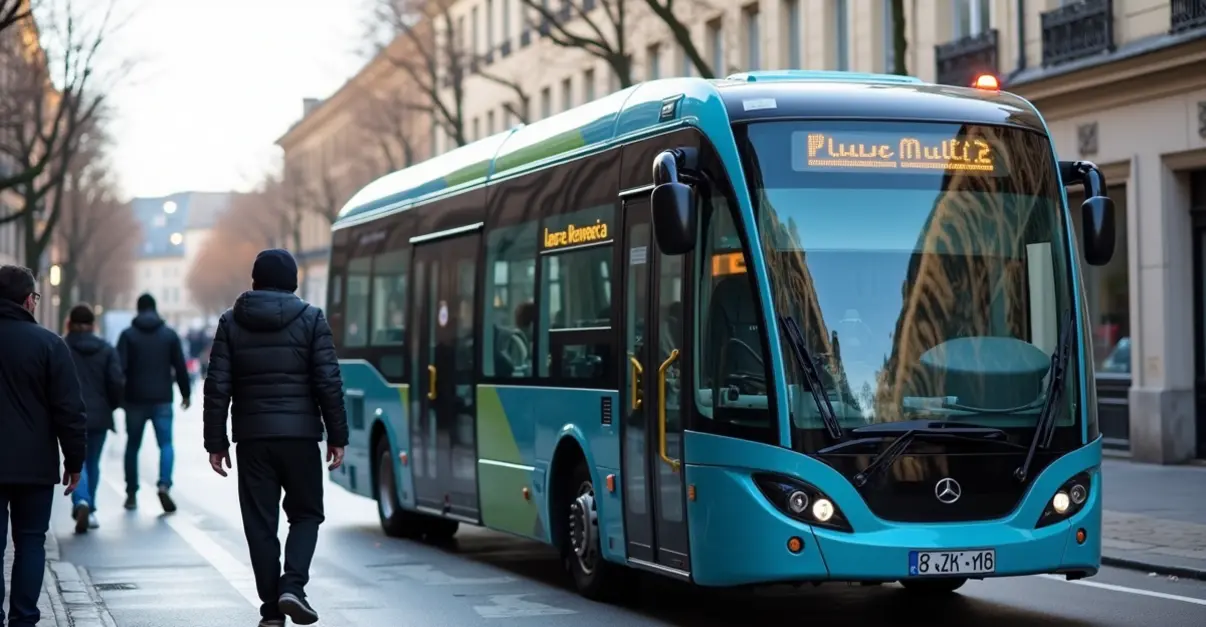Scandinavian cities launch autonomous bus trials with free rides. Gothenburg's Level-4 autonomous bus begins service in August 2025, while Oslo expands autonomous transport. Both projects aim to revolutionize urban mobility.
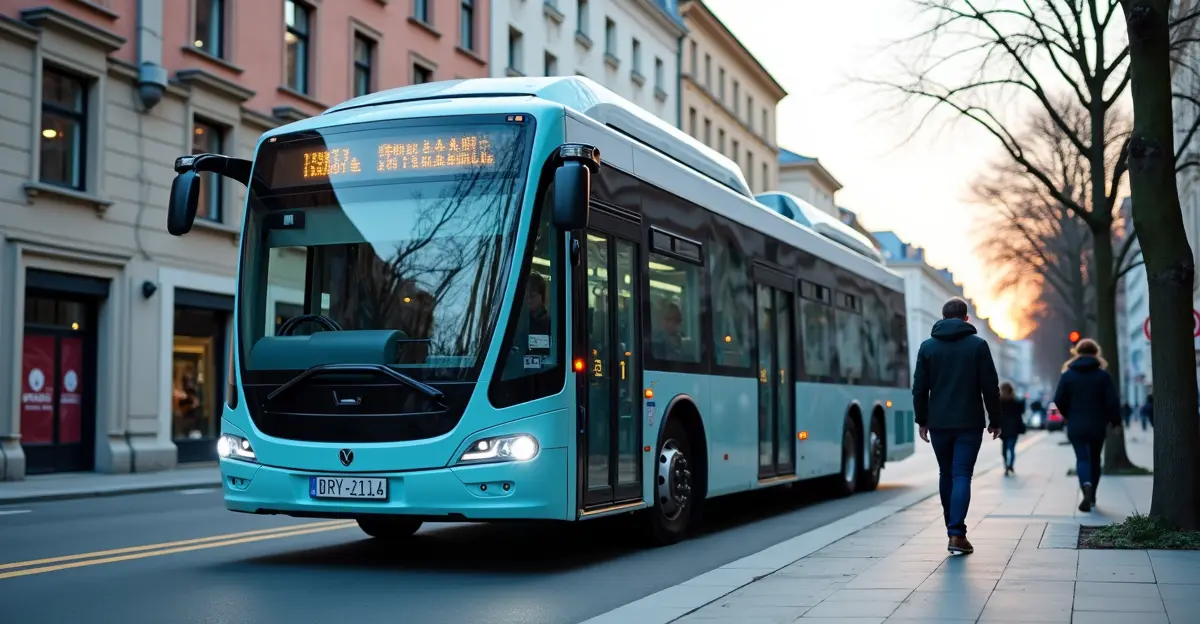
Revolutionary Autonomous Bus Fleet Hits Scandinavian Streets
Scandinavian cities are embracing the future of public transportation with the launch of groundbreaking autonomous bus services offering free rides during trial periods. Gothenburg, Sweden, is leading the charge with its first Level-4 autonomous bus line scheduled to begin passenger service in August 2025.
Gothenburg's Autonomous Transit Breakthrough
The Karsan Autonomous e-ATAK bus will operate between Gothenburg's Central Station and Liseberg Station, covering a 5-kilometer route in the Gårda region. This marks the world's first Level-4 autonomous bus designed for ticketed passengers in open traffic. 'This represents a transformative milestone for urban transit in Sweden,' said a spokesperson from ADASTEC, one of the technology partners.
The 8.3-meter electric bus can carry 52 passengers and features advanced sensor technology including LiDAR, radar, and cameras for full autonomous operation. The vehicle has already proven successful with over 100,000 kilometers of service and 35,000 passengers transported in Norway, Finland, and the USA.
Free Trial Period and Public Engagement
During the initial operational phase, passengers will enjoy free rides as part of the trial program. Västtrafik, the regional public transport authority, is organizing public seminars and test ride opportunities to familiarize residents with the new technology. 'We want people to experience this technology firsthand and understand how it can improve urban mobility,' explained a Västtrafik representative.
The project involves collaboration between multiple partners including Karsan, Västtrafik, Vy Buss, ADASTEC, and Applied Autonomy. The trial will continue until summer 2027, with a safety driver remaining on board during operations.
Oslo's Autonomous Transport Expansion
Meanwhile in Oslo, Norway, Ruter is conducting its own autonomous transport pilot project in the Groruddalen area. Launched to the public on February 3, 2025, the service currently operates five NIO ES8 vehicles equipped with autonomous driving technology. 'Our goal is to eventually operate completely unmanned vehicles as part of Oslo's public transport system,' stated a Ruter project manager.
The Oslo pilot allows users within the designated area to order rides via the Self-Driving app, with vehicles picking up multiple passengers along the same route. This initiative is part of the EU-funded ULTIMO project, which aims to create the world's first large-scale, on-demand autonomous vehicle public transport services.
Technical Specifications and Safety Features
The autonomous buses feature sophisticated safety systems including LiDAR sensors with 120-meter detection range and radar systems effective up to 160 meters. Powered by 220 kWh BMW batteries, the electric buses can fully charge in just 3 hours with DC units and operate in harsh weather conditions down to -25°C.
'The technology has been rigorously tested across multiple countries and climate conditions,' noted a technical expert from Applied Autonomy. 'We're confident in its ability to handle complex urban environments safely.'
Future Implications for Urban Mobility
These autonomous bus trials represent significant steps toward sustainable urban transportation. The long-term vision includes reducing operational costs, addressing driver shortages, and providing more flexible public transport options. 'Autonomous vehicles could revolutionize how we think about public transportation,' commented an urban mobility researcher. 'They offer the potential for 24/7 service, reduced emissions, and improved accessibility.'
As Scandinavian cities continue to pioneer autonomous public transport, the success of these trials could pave the way for wider adoption across Europe and beyond, potentially transforming urban mobility for generations to come.

 Nederlands
Nederlands
 English
English
 Deutsch
Deutsch
 Français
Français
 Español
Español
 Português
Português




